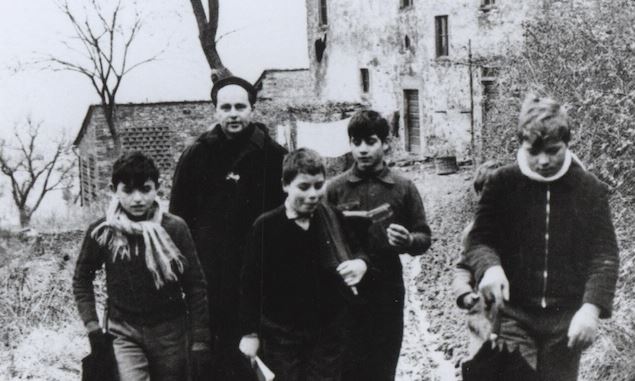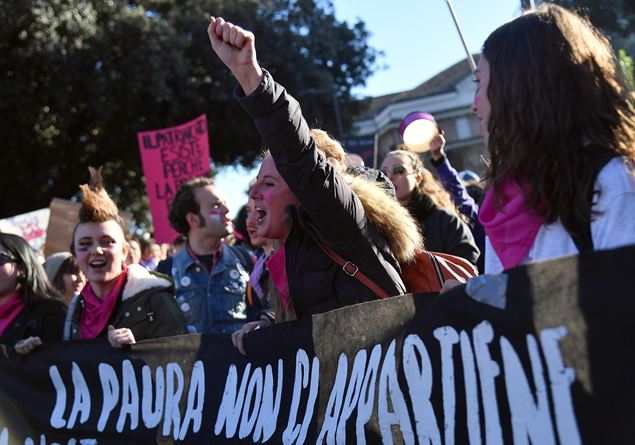
Even though for years her odd heart, now almost a hundred years old, had kept her living in the confines of her room, in that room Adele Corradi has never been closed. When asked how are you, as soon as she could she replied: “Good, because I’m alive and I like living.” He obviously missed the time when well into his 90s he allowed himself the luxury of driving and travelling, but not even for an instant had he lost his perspective on the future. We smiled with admiration and irony, good-naturedly making fun of her when at the age of 99 she complained and apologized: “I’m clumsy with this thing”. The “thing” was the smartphone with which at 99 years old he communicated remotely via WhatsApp messages. At half his age we would have liked half his desire to never stop learning. He was over 95 when he responded like this: “As for my health, it’s always good when I’m with friends because that’s what’s good about the heart, it gives you the illusion of being well until suddenly it makes you feel bad and at the same time , making you aware of the precariousness of your well-being, takes away the illusion of being immortal. In fact, normally we live knowing that we are mortal without ever remembering it.”
Until this morning, when a mutual friend announced the news of her passing, we too probably deluded ourselves that Adele Corradi, with her quick mind, her irony, her stubborn desire for life, was immortal. Of immortality he will leave us his testimony, his window onto the world of Don Lorenzo Milani with whom he had shared the last years of work in Barbiana. A middle school literature teacher, she had gone to meet the prior of Barbiana and stopped to help himrenting a room near that parish church far from everything in the Mugello mountains and having himself transferred to Borgo San Lorenzo, the nearest secondary school, to be able to go in the afternoon to help out at the prior’s school, especially with Latin.
The long daily contact with Milani and his school has made her one of the most important and clear witnesses of the prior’s personality and his method, also because she he was perhaps the only adult who, having frequented that school almost daily, could measure himself on an equal footing, with an already formed gaze, not conditioned by the student’s awe in front of the teacher’s charisma. When he talked about Lorenzo Milani, not a single holy card came out: his gaze on him was disenchanted, lucid, admired but “adult”.
For the writer, the custom with her it was decisive in capturing an aspect of Lorenzo Milani, fundamental to understanding him: the prior’s paradoxical irony. Adele said: “If he had been gruff and boring like the one in the film with Castellitto I wouldn’t have lasted a week up there.” There is a recurring risk in reading Lorenzo Milani after him: his writing risks passing off as lapidary, almost as if the author was dispensing sentences carved in stone. Talking to Adele in this way was a revelation: she dismantled those sentences, making you notice the ironic aside, the taste for the paradoxical deviation, giving you back a different man, more human, more authentic, more of a father and less of a teacher, especially when she told of the moments in which in the evening the school emptied and a kind of family remained: Don Lorenzo, Michele and Franco Gesualdi, the two boys who grew up in his house, Eda Pelagatti, more than “perpetual” as they said then in homage to Manzoni, older sister, Giulia Pelagatti the “grandmother”. Adele, stopping for dinner, could see that domestic atmosphere and by talking to her she was able to understand the reason for many misunderstandings and dismantle them.
There was no real confidence with the prior but a solid mutual respect, which did not prevent elements of dissent. He once told me: “I don’t think he ever even shook my hand or said thank you in the proper sense of the word. But I stayed up there for some time after him because when I got there I reasoned like the Literature teacher, I thought it was justice to give equal parts to unequals, up there I understood that it wasn’t true”. Without her this look will be lost. It remained in his only book: I don’t know if Don Lorenzo and in Two hundred letters who selected his latest work with Father José Luis Corzo and Federico Ruozzi on the occasion of the centenary. He said he had chosen them among many so that his personality as he had known him would come out.
This point of view of his will be greatly missed by anyone who is about to study Don Lorenzo Milani from here on out, in this sense the disappearance of Adele Corradi is an objective loss for history. But it is also a subjective loss for those who were lucky enough to know her and maintain a direct line with her, becauseIt will be a great nostalgia to no longer be able to count on the life lessons of those who, on the threshold of the century, always chose to bet on the good days, even if they were increasingly rare.. On the last of those good days in which it was possible to improvise a meeting, amidst aches and pains, in her Florentine home beyond the Arno, we found her in the room that was now her world: the laptop on the bed, to keep in touch via email. contact with the world, in your hands a copy of Miserable. In French. And the usual smile, ready to suddenly turn into laughter. The same one that is perhaps echoing in these hours in the parts of paradise.






